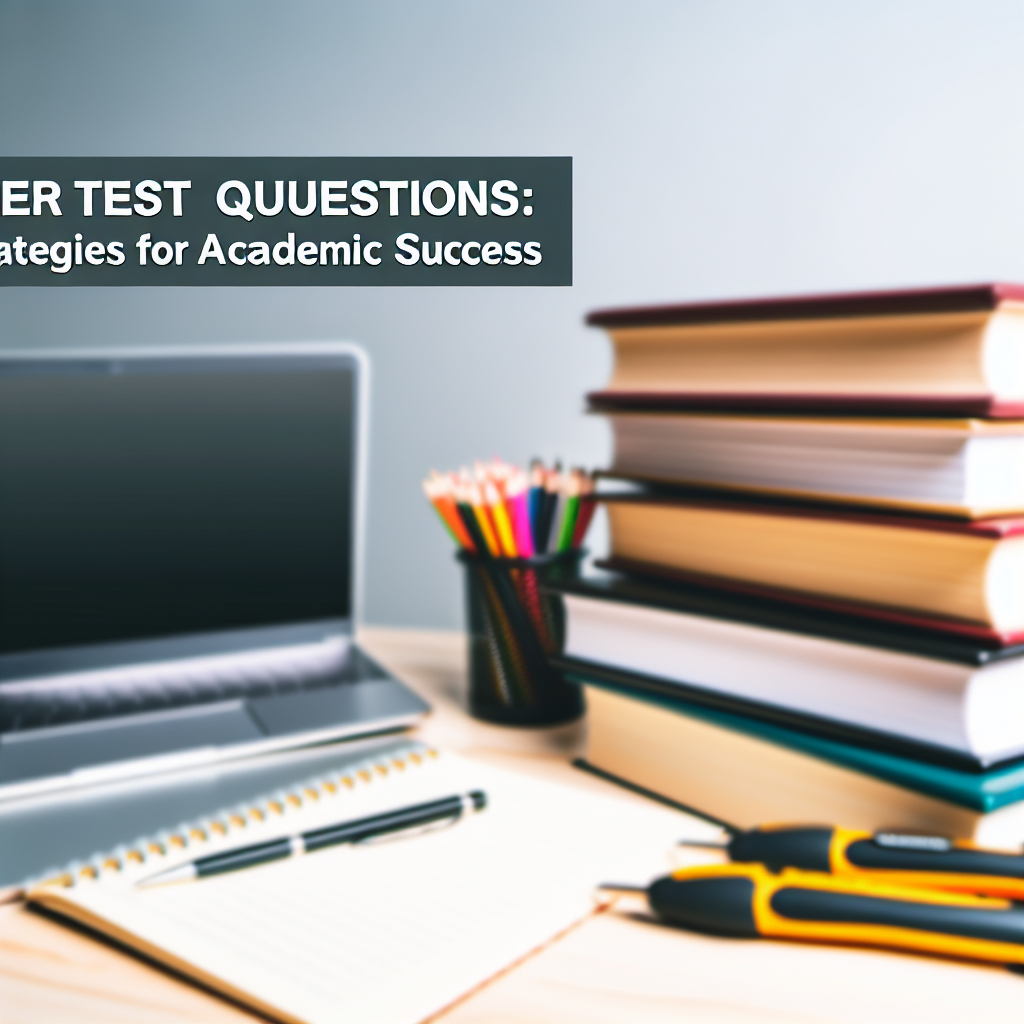Mastering how to answer any question on a test is essential for academic success and building confidence. Whether you’re faced with multiple-choice, short answer, or essay questions, knowing effective strategies can significantly improve your performance. In this article, we’ll explore practical methods to approach and excel at answering various test questions.
Understanding the Question and Planning Your Approach
The first step to answering any test question effectively is to carefully read and interpret what is being asked. Many students lose valuable points because they misunderstand the question’s requirements. Take a moment to identify keywords and directives such as “explain,” “describe,” or “compare,” which indicate the expected depth and type of response.
Once you grasp the question, allocate your time wisely by planning your answer. For example, if a question requires a detailed explanation or multiple points, jot down a quick outline or key ideas before diving into writing. This planning ensures your answer remains focused and comprehensive.
For multiple-choice questions, eliminate obviously incorrect options first to narrow your choices, then analyze the remaining options carefully. For essay or long-answer questions, organizing your thoughts beforehand helps deliver clear, logical responses that directly address the prompt.
Implementing Effective Answering Techniques
Once you understand what the question demands, it’s crucial to implement techniques that maximize clarity and accuracy. Here are some essential tips:
- Stay Calm and Focused: Anxiety can impair your ability to recall information. Take deep breaths and approach each question methodically.
- Answer Every Question: Even if unsure, make an educated guess. Leaving questions blank guarantees no points, whereas educated guesses have a chance of earning points.
- Use Clear, Concise Language: Avoid fluff or overly complex sentences. Be direct and precise to communicate your understanding effectively.
- Support Your Answers: In essay questions, bolster your points with specific examples, facts, or reasoning. This demonstrates depth of knowledge and critical thinking skills.
- Review Your Answers: If time permits, revisit your responses to correct mistakes or add missing details. Even a brief review can elevate your grade.
Remember, practicing with past tests and sample questions can improve your ability to implement these techniques smoothly during real exams.
Conclusion
Successfully answering any test question involves understanding the prompt thoroughly and applying strategic techniques to communicate your knowledge clearly. By carefully reading questions, planning your responses, and staying composed, you can boost your test performance dramatically. Consistent practice and following these methods will help you approach exams with confidence and achieve better results.
